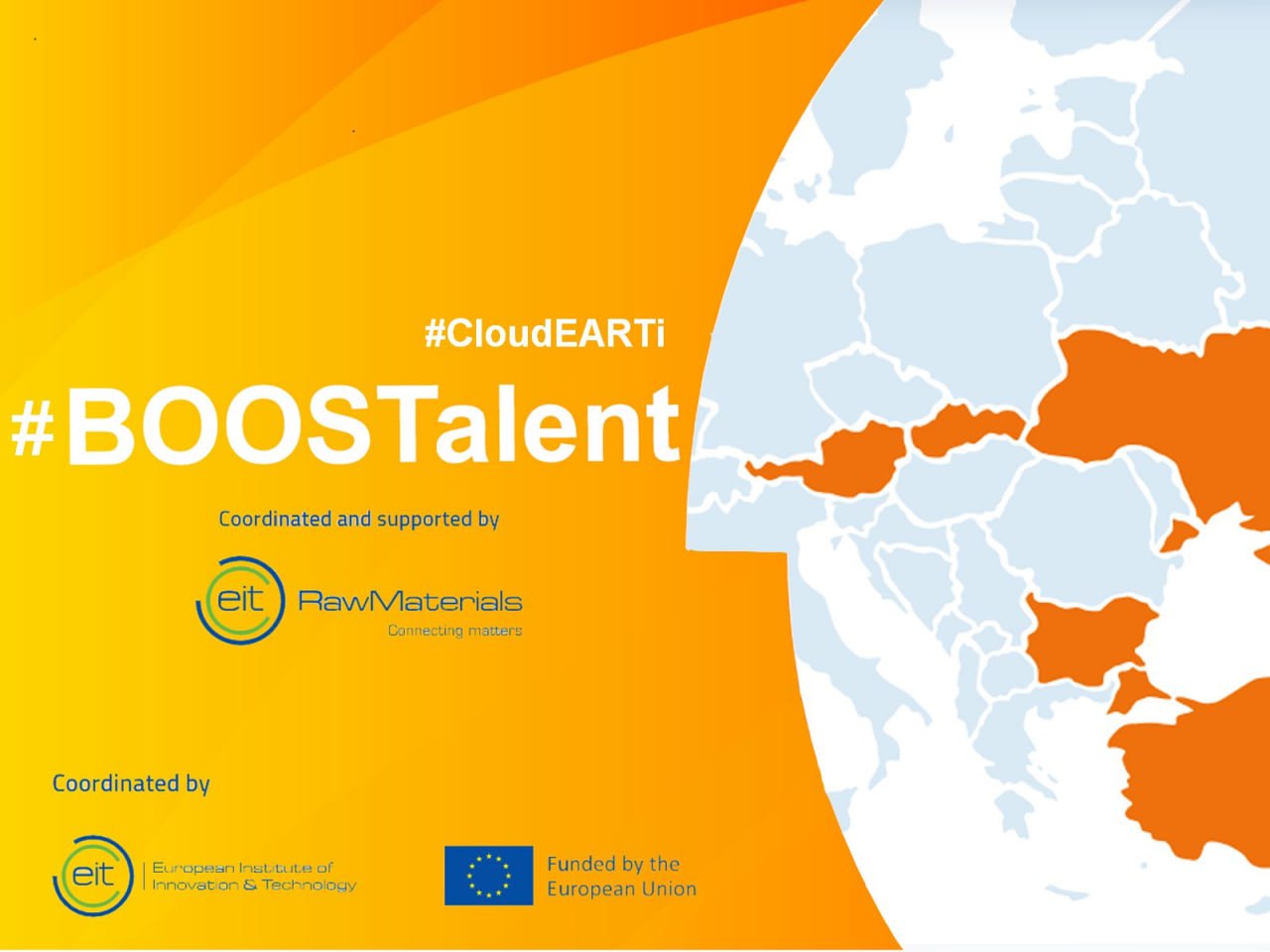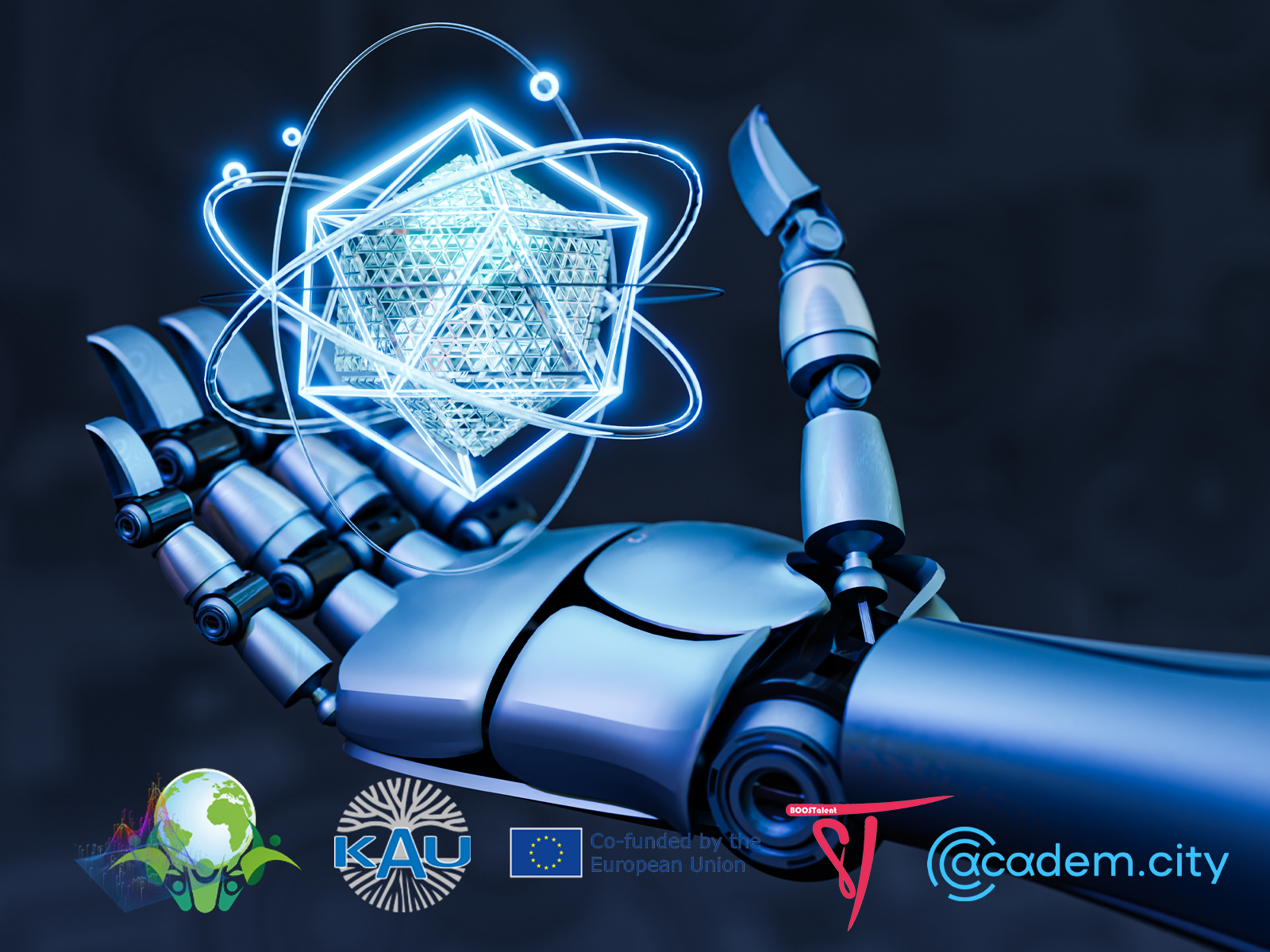
The course is a part of the Atomistic Materials Informatics: From First Principles to Machine Learning Methods course, approved by the Deep Tech Talent Initiative.
The course takes an advanced dive into the intricacies of building Machine Learning models that augment and expand the possibilities of the first-prinicples methods of Quantum Mechanics in atomistic materials simulations. The study materials cover the topics from specifics of architectures of atomistic ML models, through the details of data acquisition and preparation, to training, validation, and application of the models. The course gives practical recipes for the steps to take in building the models and overcoming some of the challenges along the way.
Registration keyword: KAU2024

The course is a part of the Advanced Powder Materials and Technologies course, approved by the Deep Tech Talent Initiative.
In these lectures, the spotlight is on ceramic-ceramic composite materials characterized by macroscopically homogeneous structures, with a particular emphasis on particulate nanocomposite systems. To provide a comprehensive overview, this lecture is dedicated to discussing the synthesis methods of nanocomposite ceramic powders, underscoring the pivotal role of this manufacturing step in shaping the micro/nanostructural attributes of the composites and their subsequent properties. We will observe the structural characteristics of single-phase nanocrystalline ceramics and some composites followed by an exploration of nanostructured composites. The concluding lecture is dedicated to the practical route from the synthesis methods of nanocomposite ceramic powders, and consolidation of nanocomposite, underscoring the pivotal role of this manufacturing step in shaping the micro/nanostructural attributes of the composites and their subsequent properties.
Registration keyword: KAU2024Lecturer: Ostap Zgalat-Lozynskyi
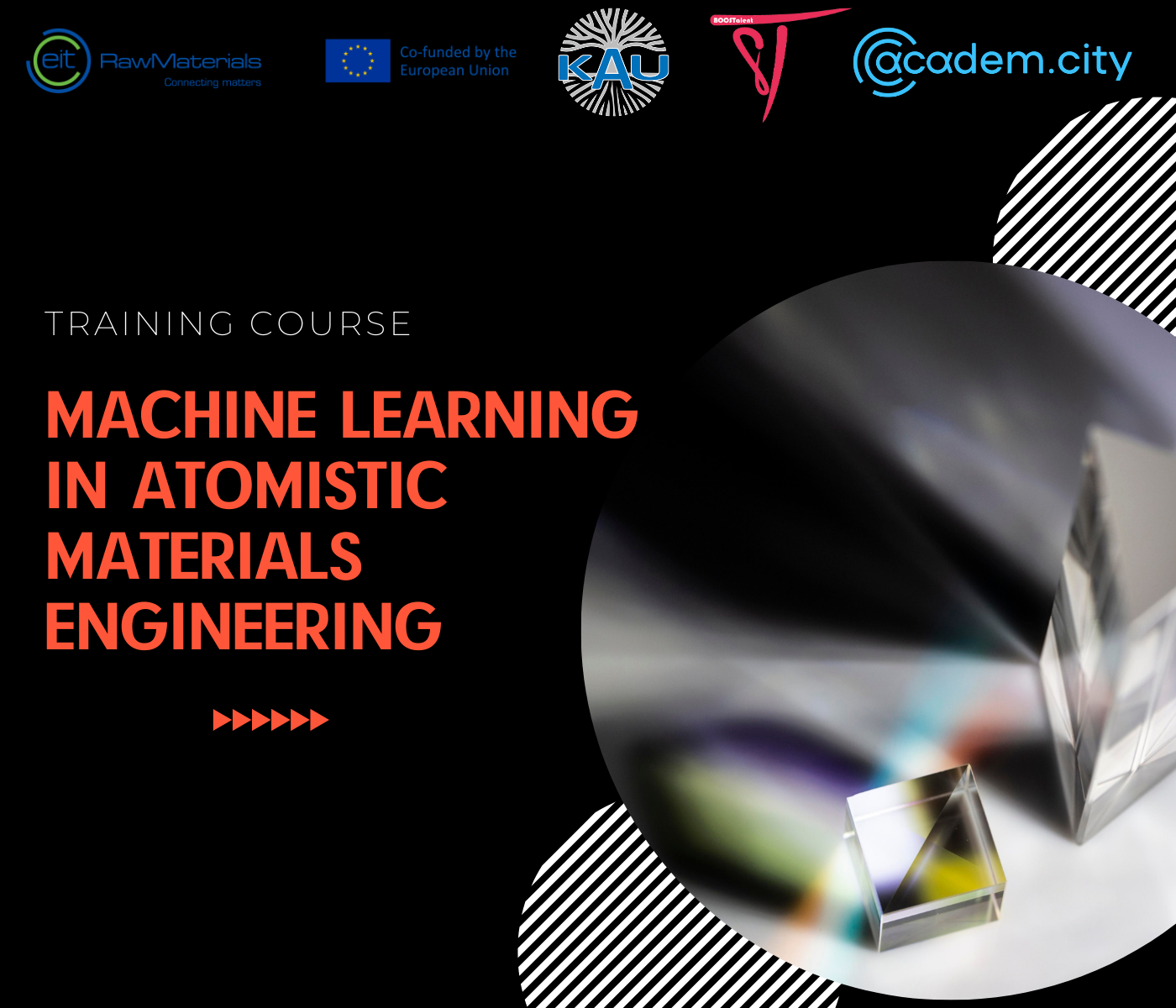
The course is a part of the Atomistic Materials Informatics: From First Principles to Machine Learning Methods course, approved by the Deep Tech Talent Initiative.
This four-lecture course explores the exciting intersection of machine learning (ML) and atomistic materials engineering, a powerful approach to materials modeling alleviating the limitations of traditional methods, such as DFT. We will look into the theoretical foundations of ML techniques and their applications using cutting-edge tools and frameworks to analyze atomistic data, construct linear atomistic models, and develop machine learning interatomic potential (MLIP) models.
Registration keyword: KAU2024

The course aims to provide participants with a profound understanding of the theoretical foundations, practical implementation, and emerging trends in the integration of digital twins within the realms of advanced materials and sustainable structural design. It helps to bridge the gap between theory and practice, empowering learners to leverage digital twins for the development of innovative materials and environmentally conscious environment.
- Lecturer: Milenin Oleksii
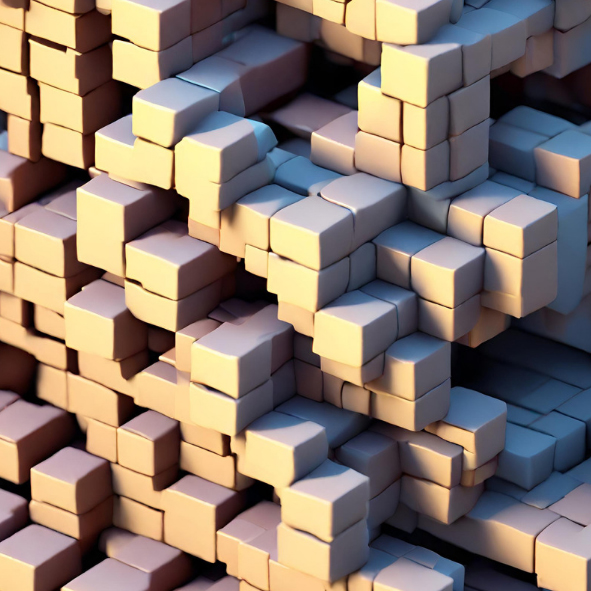
- Lecturer: Milenin Oleksii
- Lecturer: Костін Валерій
The course is a part of the Advanced Powder Materials and Technologies course, approved by the Deep Tech Talent Initiative.
The lecture course “ADVANCED POWDER TECHNOLOGIES” is based on practical R&D experience of nanostructured materials from their synthesis to consolidation. The main principles of material structure engineering are considered. Examples of the application of modern technologies like Spark-plasma sintering, Microwave sintering, and Rate-controlled sintering for manufacturing of bulk nanostructured materials of various functional purposes are given.
Registration keyword: KAU2024- Викладач: Zgalat-Lozynskyy Ostap
The course of lectures INTRODUCTION TO POWDER TECHNOLOGY is devoted to the basics of working with nanostructured objects, for example, nanopowders, nanofibers, etc. Within the framework of the proposed course of lectures, the listeners will be introduced to research on the synthesis and consolidation of ceramic nanocomposites using such modern methods as Sperk-Plasma Sintering, Microwave sintering and Rate-controlled sintering. The advantages of nanostructure materials compared to traditional materials with a micron grain size will be shown.
Registration keyword: KAU2024
- Викладач: Zgalat-Lozynskyy Ostap
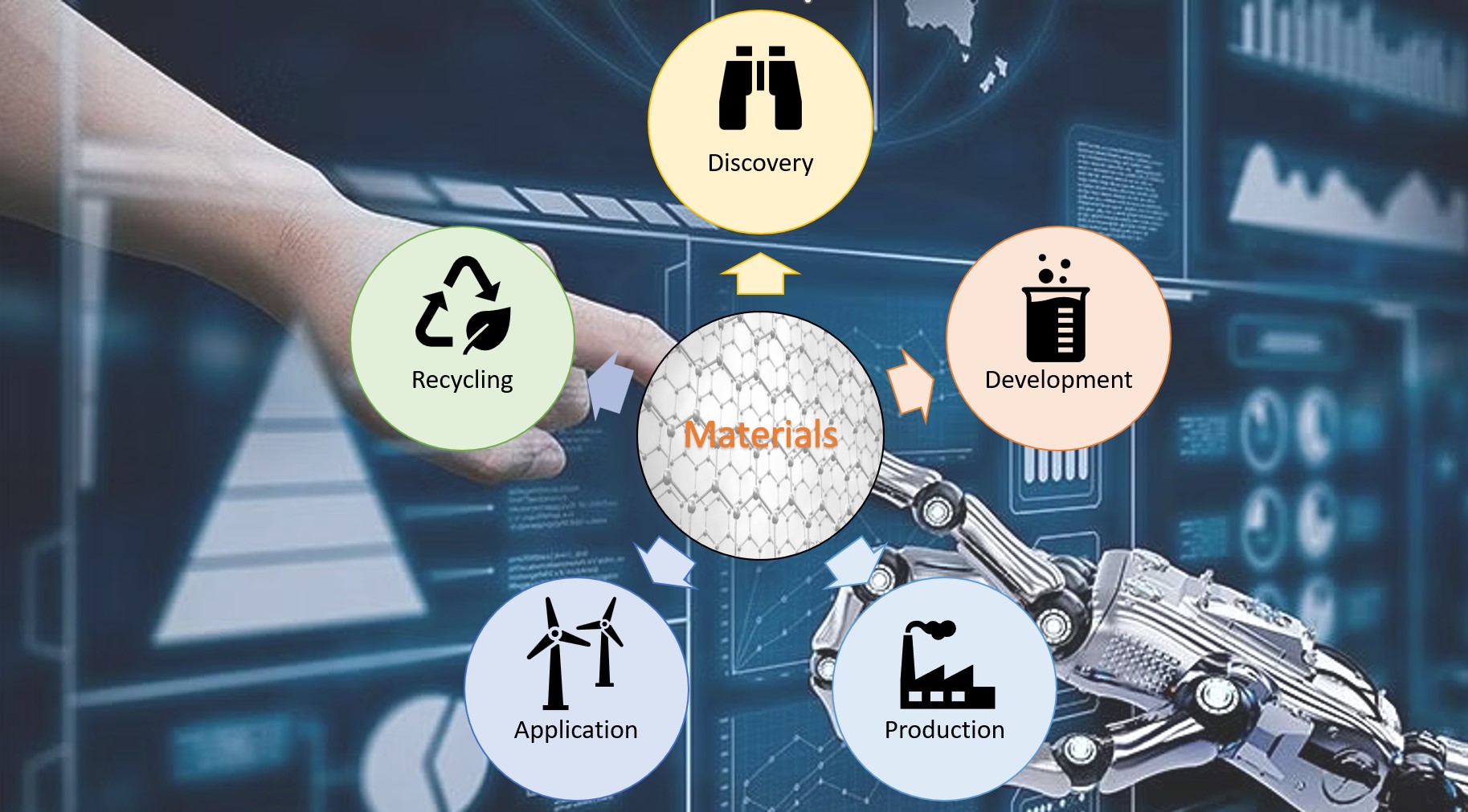
This course, "Machine Learning in Materials Lifecycle," offers a
comprehensive introduction to the intersection of machine learning and
materials science. Designed for undergraduate students and business
professionals with limited technical background, the course spans five two-hour lectures. It covers the basics of machine learning and materials
science. It delves into how machine learning algorithms can be applied
across the materials lifecycle—from discovery and development to
production, testing, application, and recycling. Through case studies
and real-world examples, participants will gain insights into the
transformative impact of machine learning on materials science,
preparing them for future opportunities and challenges in this
interdisciplinary field.
Registration keyword: KAU2024
- Викладач: Vasiliev Oleksandr

Представлений курс лекцій містить огляд сучасних уявлень про процеси перетворення, що відбуваються у металах та сплавах. Під терміном «перетворення» тут розуміються процеси, що призводять до формування та зміни структури твердих тіл: розподіл атомів у кристалічній граткі, атомне впорядкування, процеси кристалізації, фазові перетворення у твердому стані, поліморфні і мартенситні перетворення, тобто такі, які не супроводжуються перерозподілом хімічних елементів у твердому розчині. Ці знання сприятимуть глибокому розумінню процесів структуроутворення у сучасних матеріалах і підготують до розв'язання фундаментальних та практичних задач у галузі сучасного матеріалознавства.
- Викладач: Костін Валерій

Курс містить необхідні початкові знання про матеріали, методи їх класифікації, структуру та властивості, визначає переваги та недоліки різних матеріалів - сталей, чавунів, легких сплавів - алюмінієвих та магнієвих, неметалевих матеріалів. Запропоновваний курс пропонує студентам широкий огляд різноманітних типів матеріалів та їхніх властивостей. Це допоможе студентам зрозуміти класифікацію матеріалів та їх застосування в різних сферах. Курс дає фундаментальні знання, необхідні для подальшого вивчення матеріалознавства та спеціалізації в цій галузі. Ці знання сприятимуть глибокому розумінню матеріалів і підготують до розв'язання фундаментальних та практичних задач у галузі сучасного матеріалознавства.
- Викладач: Костін Валерій

Курс містить вичерпний огляд методів вивчення хімічного складу, структури та властивостей сталей і сплавів, а також включає практичні навички, необхідні для проведення лабораторних досліджень і аналізу даних. Ці знання сприятимуть глибокому розумінню матеріалів і підготують до розв'язання фундаментальних та практичних задач у галузі сучасного матеріалознавства.
- Викладач: Костін Валерій

The purpose of the course is to form a comprehensive understanding of the main fundamental concepts and technologies of joining and processing of advanced materials. The course forms an understanding of physical, physico-chemical and mechanical processes that determine the possibility and quality of joining various materials; understanding of technological methods of welding and joining; knowledge about the peculiarities of connecting typical materials of different classes; skills of conducting basic calculations for the purpose of analyzing the main processes when joining materials and assessing the quality and reliability of joints and structures.
- Lecturer: Milenin Oleksii
